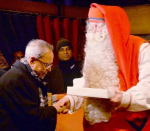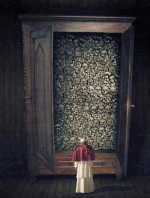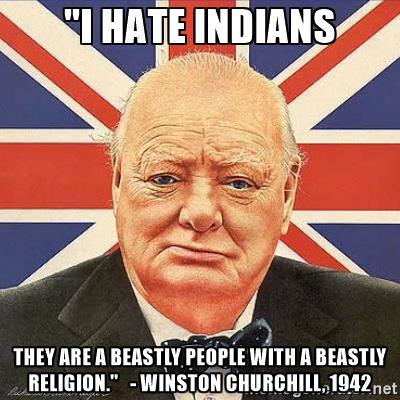 Traditional Hellenistic astrology, with its wealth of ancient texts, deserves the same respectful suspension of disbelief as other old-world scientific fields. – Ida C. Benedetto
Traditional Hellenistic astrology, with its wealth of ancient texts, deserves the same respectful suspension of disbelief as other old-world scientific fields. – Ida C. Benedetto
It’s time to speculate about what 2018 will bring. Condemned by science and denigrated by much of society, you might think that astrological predictions are fluffy woo-woo that won’t help you navigate the year ahead. But that’s not because astrology itself is inaccurate. It’s because astrology has been ruined by modern psychology.
Astrology’s contemporary flavor has a closer relationship with the social science of psychology than the observational science it used to be based upon. If we can set modern judgments aside and learn the language of the ancient astrologers—a language that is now newly available due to the recent revival of classical texts—we may discover lost insights.
Looking to the stars
The ancients looked to the sky for clues about why things happened in the material world around them. Astrology had its heyday in the Mediterranean in the Hellenistic period, an era that took place between the 3rd century BC and the 1st century CE. These ancient astrologers based their interpretations on centuries of observations recorded by the Mesopotamians who came before them. They kept careful records of astronomical phenomenon, looking for correlations between what happened in the sky above them and the material world around them.
Today, modern psychology has cast astrology as a fantastical way that people of the past project the workings of their minds onto the environment around them. This interpretation leaves far too much wiggle room for astrology to simply sound like affirmations of what people want to hear about themselves and think about the world. Even worse, the nurturing approach psychologists take has polluted modern astrology with watered-down interpretations that seek to protect their clients. Even if an astrological configuration spells trouble, the modern astrologer will describe it as an “opportunity for growth,” as if they were a patronizing middle-manager. Where is the trust in that?
With the feel-good, pop-psychology variety of astrology growing like fungal spores throughout the millennial covens of the internet, both believers and skeptics are cause for concern. The New York Times recently claimed that the “astrology boomlet owes as much to the dynamics of the modern internet as it does to any sort of cosmic significance about the millennial’s place in the universe.” But dismissing all of astrology outright undermines the insights that ancient practitioners may have had—insights that are impossible to access from our concrete jungles, perpetual digital connectivity, and space exploration. When we had more time to look at the sky, what knowledge was possible to unfurl that’s hard to access now?
For over 16 centuries, we haven’t really known what ancient astrologers wanted us to practice. But in the past 20 years, traditional astrological texts have been translated into modern languages for the first time. These texts come from the same scientists who produced the first analog computer and principles of geometry that we still use today. Modern astrology may be overrun with mushy hocus-pocus thanks to conflations with psychology, but newly accessible ancient astrological methods could produce a revival in the power and credibility of the craft.
Horoscopes, star signs, and other inventions
Don’t relate to your sign? That might be because sun-signs astrology is a recent creation designed to appeal to mass audiences.
Pop astrology was born in the late 19th century during the boom in new-age exploration, and was then fueled by developments in psychology in the 20th century. The notion that your sun sign indicates your character was popularized by esotericist Alan Leo in England in the 1890s. He was part of a group called the Theosophical Society that scoured spiritual traditions of all sorts looking for wisdom that would help society get to the next stage of development. They called this era the “New Age”. Leo justified his simplification of astrology as serving humanity’s spiritual betterment. His writing garnered enough of an audience to provoke several legal battles in the 1910s for unlawfully practicing fortunetelling.
The sun-sign approach to astrology continued to grow in popularity through newspaper columns in the first half of the 20th century and boomed when New Age went mainstream in the 1960s. Historian Nick Campion notes that “sun-sign astrology domesticated the universe” at a time when astronomy discovered that our galaxy was one small dot among billions in a perpetually expanding universe. When modern science was making humanity look smaller and more insignificant than ever, people found it reassuring to think of their personalities as being reflected in the stars.
And it wasn’t just the pre-hippy folk: During this time, Carl Jung also began exploring astrology. Jung, who created the psychological categories of introversion and extroversion and formed the basis for the popular Myers-Briggs personality test, placed astrology on par with mythology in explaining the workings of the human psyche. He regularly referenced astrology in his books published from the 1920s through the 1970s, offering a legitimate point of reference for astrology to those who wouldn’t touch the theosophical new-age mania with a 10-foot pole.
Modern astrologers today still reference Jung’s interest in astrology as a sign of its legitimacy, even though Jung himself said that there was no causal relationship between what happened in the stars and what happened on earth. As far as he was concerned, it was all just in our minds. In the hands of the new-age movement, Jung’s prognosis reduced astrology into hokey pop psychology, fun to consume but about as substantive as sugary breakfast cereal.
Out with the old
People who claim that astrology (as practiced in its current form) is based on thousands of years of tradition are wrong. Until recently, explorers of modern astrology didn’t even have proper access to the classical astrological texts on which their predictions were based off.
Originally, astrology flourished in the Hellenistic period alongside various sciences like mathematics, medicine, and engineering. When the Roman empire fell in the 5th century, Hellenistic texts of all kinds were scattered and fragmented over the millennium as their standing with Christian and secular European society fell in and out of favor. Ancient astrology looked to be delegated to dusty Greek attics.
In the late 19th century, a group of German linguists stumbled upon previously unpublished fragments of Hellenistic astrological texts. The discovery set in motion a 50-year task of collecting as many of the overlooked texts as they could find in libraries across Europe. The fragments filled 12 volumes, but they didn’t bother to translate any of it from the original Greek. In the early 1990s, a group of astrologers decided to translate this and other classical works in the hopes that they would recover something worthwhile. They called the effort Project Hindsight and styled themselves after Renaissance intellectuals reviving the lost art of ancient algebra. In an interview on The Astrology Podcast, Robert Hand, a respected figure in modern astrology who played a central role in Project Hindsight said, “as far as I’m concerned, the modern system [of astrological planets] is bullshit.” Once he could finally get up close and personal with the ancient texts, Hand scrapped the beliefs he held for decades about how to do astrology.
After a decade and a half of translation work, Project Hindsight claims to have revived the old astrological methods. And the results are complicating astrology’s modern love affair with psychology. No longer a folksy way to look at our individual personality and character, astrology as we know it is getting pushed aside and being replaced by older techniques of looking at why real-world events happen.
In with the new
Traditional Hellenistic astrology brings a rigor and harmony to astrology that modern methods washed over. The modern system flattened the houses, which describe worldly matters like money, love, and career, into the zodiac signs of the star constellations. (The ancient texts never conflated the two.) Prying these important pieces of astrology back apart clarifies how the ancients related movements of the heavens with events on earth. Compare this to new-age psychological astrology, which over accentuates internal matters of the mind and spirit, opening up far too much room for confirmation bias. Modern astrology also hastily assigned outsized influence to the newly discovered planets of Uranus, Neptune, and Pluto without the centuries of observational data that the Hellenistic astrologers were working with.
One of the greatest sticking points where traditional and modern astrology diverge is destiny. Hellenistic astrology describes a causal relationship between the movement of planets and stars and the material world on earth. The ancients also believed in the notion of fate. Fatedness runs counter to our modern notion of free will, and therefore many find traditional astrology unpalatable. However, we do not need to believe in a fatalistic view of planetary movements to revive some insights in the work of the ancient astrologers who espoused them.
The influence of modern psychology isn’t all bad. Astrologer Demetra George, who was an early subscriber to Project Hindsight’s translation initiative and is now a leading figure in traditional astrology, points to the modern interest in introspection and “interior life” as illuminating parts of astrology that were foggy to the ancients. Now, modern psychology can enrich those parts of the astrological tradition.
Astrologer Wonder Bright, a former student of George, thinks modern astrology’s counseling approach is also a positive contribution to the art. The client/astrologer encounter takes on overtones of a therapist/patient relationship, even when traditional astrological methods are used. “Modern counseling methods,” says Bright, “are a boon to the astrologer and probably account for the large percentage of women studying and practicing astrology nowadays, which would have been unthinkable in previous centuries.”
The feminist potential of a modern/traditional astrology mash-up helps drive the popularity of Chani Nicholas, who publishes a weekly sun-sign column on her website. Her writing carries strong feminist and social-justice overtones, hitting on the zeitgeist of the moment not unlike what Alan Leo did in his time over a century ago. Her audience is devoted and growing, with a regular readership reaching over 1 million people.
While people can now preach openly about crystals or sound-vibration healing and only get a single eye roll, those who look to astrology for answers are still in the proverbial closet. When I told people that I was preparing an article on the topic of astrology, colleagues who I assumed would have no connection to the topic at all asked with hushed excitement, “Do you read Chani, too?”
Traditional astrologers, it’s time to come out into the light.
Predicting astrology’s future
The revival of traditional astrology is still in its early days. As with most discoveries from antiquity, it takes time to integrate findings into existing knowledge. Take the Antikythera mechanism for example, the earliest known analog computer that dates from the Hellenistic period. Archeologists recovered it from an ancient shipwreck in 1902, but new insights about what the stunningly advanced device could do were still being published as recently as 2008—and that’s with full scholarly and institutional support to study it. Computers, even ancient ones, aren’t taboo like astrology is.
Astrology is a practice. It only comes alive through use. If we’re too skeptical to use it, we won’t be able to access whatever the ancients might have been on to. “We need to learn the language of the doctors of that time and be a little less dismissive so we can learn a little more from them,” says microbiologist Freya Harrison, who along with Viking historian Christina Lee recently discovered that a medieval concoction could effectively kill MRSA, an antibiotic resistant “superbug” that has killed more people annually than AIDS during major outbreaks in the US.
Traditional astrology, with its wealth of ancient texts, deserves the same respectful suspension of disbelief as other old-world scientific fields. The first step? Leaving the conceits of modern psychology behind. – Quartz, 3 January 2018
» Ida C. Benedetto is a Senior Designer at SYPartners, School of Visual Arts, Brooklyn, New York.
Filed under: greece | Tagged: astrology, greece, greek astrology, psychology, science | 1 Comment »



























